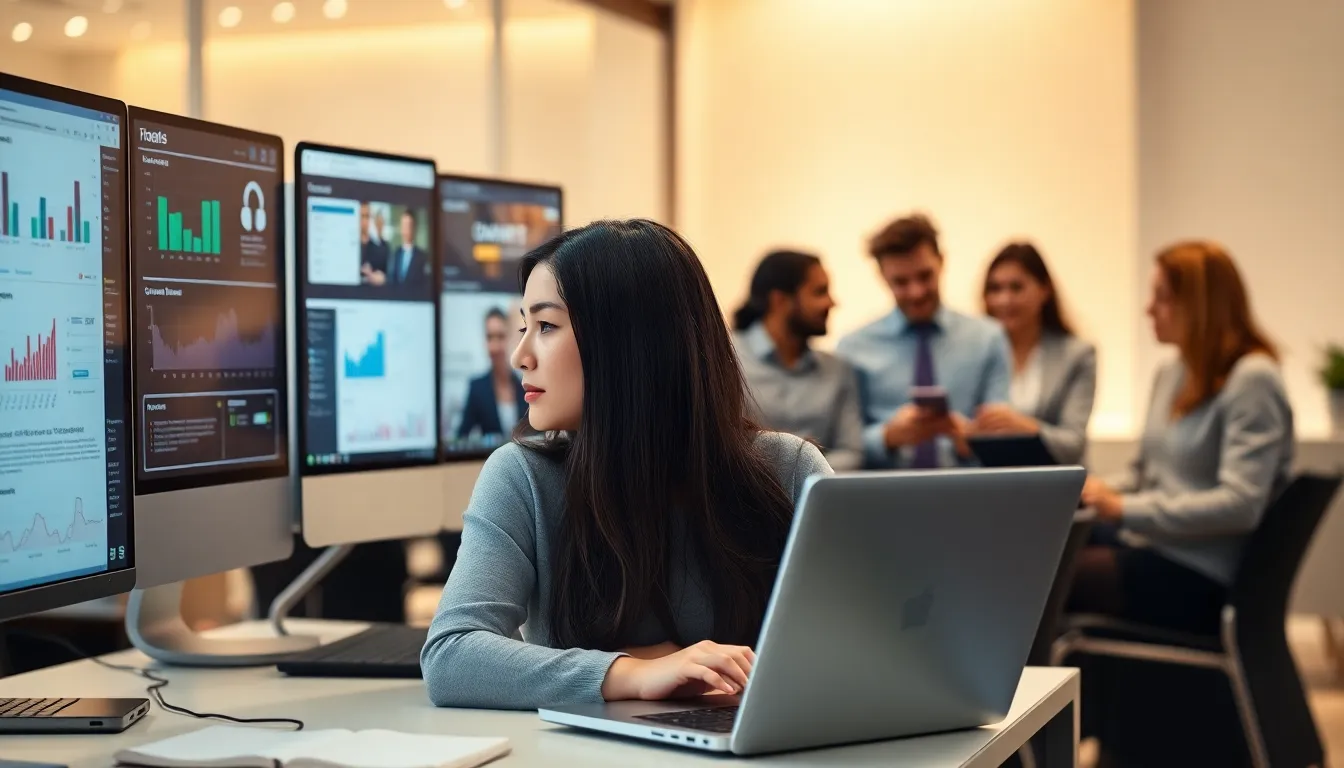Imagine waking up, pouring yourself a cup of coffee, and rolling into work without even changing out of your pajamas. Sounds dreamy, right? Well, for those venturing into the world of govtech jobs remote, this could be a daily reality. As the landscape of government technology evolves, opportunities for remote work are booming. Let’s jump into what govtech is, the remote job options it presents, and why you should consider jumping on this trend today.
Table of Contents
ToggleUnderstanding Govtech and Its Growth

Govtech, short for government technology, is a revolutionary sector that merges technology with governmental functions. This area has seen explosive growth over the past decade as governments worldwide look to enhance service efficiency, transparency, and public engagement through innovative tech solutions. The COVID-19 pandemic only accelerated this trend, spotlighting the necessity for digital transformation within government spaces. With budgets increasingly shifting toward tech-driven solutions, it’s no surprise that remote govtech jobs are on the rise. According to recent analysis, the govtech market is projected to reach over $500 billion by 2025, making it an appealing field for job seekers. This tremendous growth indicates a wealth of opportunities for professionals looking to enter this evolving sector.
Types of Remote Govtech Jobs
So, what types of remote positions can you expect in the ever-expanding govtech landscape? The sector is diverse, meaning there’s likely a role that suits various skill sets. Here are a few notable categories:
- Software Development: Developers create applications that streamline government operations or enhance citizen services.
- Data Analysis: Analyzing public data to inform policy decisions is crucial. Data scientists and analysts can often work remotely.
- Project Management: Coordinating projects that involve tech development or integration can also be done from home, making this role highly sought after.
- Cybersecurity: Protecting sensitive government data is paramount, and many cybersecurity roles now offer remote work options.
- User Experience Design: Designers focus on building accessible and user-friendly platforms for citizens, often collaborating with remote teams.
These positions not only allow for flexibility but also contribute to meaningful projects that impact society.
Skills Required for Remote Govtech Positions
For those eyeing a position in the remote govtech world, a combination of technical and soft skills is often needed. Key skills include:
- Technical Proficiency: A strong foundation in relevant technologies such as cloud computing, programming languages, and data analytics tools is essential.
- Adaptability: The ability to quickly switch gears and embrace new technologies or processes is crucial in this fast-paced environment.
- Communication Skills: Working remotely necessitates first-rate communication skills, allowing for effective collaboration across various teams and departments.
- Problem-Solving: Daily challenges arise within government agencies. Those who can think critically and propose solutions will thrive in the govtech field.
- Understanding of Public Policy: Knowledge about how governmental systems operate can help candidates devise technology solutions catered to specific needs.
Having a well-rounded skill set tailored to these areas can significantly enhance job prospects in this sector.
Navigating the Job Market: Where to Find Remote Govtech Roles
Finding a remote job in govtech can feel daunting at first, but plenty of resources are available to help navigate the market. Here are some effective strategies:
- Job Boards: Websites like GovJobs, Remote.co, and FlexJobs specialize in remote opportunities, making them ideal for job seekers.
- Networking: Leveraging professional platforms like LinkedIn to connect with industry professionals can open doors to hidden job markets.
- Company Websites: Directly visiting the career pages of govtech companies can yield fresh listings and insights into company culture.
- Government Agencies: Many local and federal agencies are now listing remote positions directly on their websites. Keeping a close eye on these boards can pay off.
By using a combination of these strategies, candidates can position themselves effectively in the competitive govtech job market.
Challenges of Remote Work in Govtech
While remote work offers many advantages, it also presents unique challenges, especially in the govtech sector. Some of these include:
- Communication Hurdles: Miscommunication can occur more easily when teams aren’t in the same room, potentially affecting project timelines and outcomes.
- Regulatory Compliance: Navigating the many regulations surrounding government work can complicate remote operations. Understanding compliance requirements is key.
- Isolation: Remote workers may feel disconnected from their teams or miss out on crucial networking opportunities, which can impact career growth.
- Tech Restrictions: Some government agencies have strict policies concerning which technologies and tools can be used, which can limit the effectiveness and efficiency of remote workers.
Employees need to prepare for these challenges by developing strong communication habits and staying well-informed about policies.
Future Outlook for Remote Govtech Employment
The outlook for remote work in the govtech sector is overwhelmingly optimistic. As governments continue to embrace digital transformation, the demand for tech-savvy professionals will likely grow. Official reports indicate that positions in data analytics, software development, and cybersecurity are expected to rise substantially. Besides, the transition to remote work is influencing future workspace designs. Innovative hybrid models are emerging, allowing for both in-person collaboration and remote flexibility. As such, professionals in the field should anticipate an increasing array of options, enabling them to align their careers with personal and professional goals.








